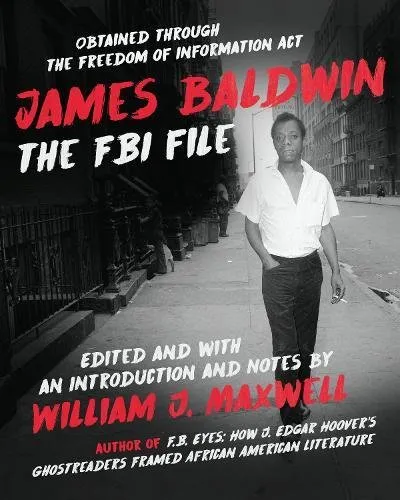Professor Maxwell's scholarly research, rooted in both modernist and African American studies, explores the ties between Black writing and U.S. political history.
William J. Maxwell, a professor at Washington University since 2009 and the Fannie Hurst Chair since 2023, teaches courses in 20th- and 21st-century American and African American literatures. His articles and reviews have appeared in academic and popular journals including African American Review, The American Historical Review, American Literary History, American Literature, Callaloo, Harper's, The Irish Times, The Journal of American History, Modernism/modernity, Politico, Publishers Weekly, Salon, and the Times Literary Supplement (TLS). Maxwell is currently at work on James Baldwinism Now: The Baldwin Revival and Twenty-First Century Memory. Contracted by Princeton University Press, this book charts the course of Baldwinism, the eager and inventive backward glance that has made Baldwin the twentieth-century African American writer most treasured in the twenty-first. Along the way, it recharts the life he lived firsthand and the crosscurrents of Black historical memory we live with today, almost forty years after his death.
Maxwell has published five books. The most recent, co-edited with Gary Edward Holcomb, was the first-ever edition of Claude McKay’s Romance in Marseille, a lost novel of Black migration, physical disability, and the meaning of reparations released by Penguin Classics in 2020. One of New York Magazine’s top ten books of the year, Romance was also named a New York Times and Sydney Morning Herald book of the week and a New York Times Book Review editors’ pick.
Maxwell’s first book, New Negro, Old Left: African American Writing and Communism between the Wars, issued by Columbia University Press in 1999, entered the debate over the involvement of African American writers in the “Old,” pro-Soviet left. In contrast to prior studies focused on the Great Depression, New Negro, Old Left traced the source of the “Black-Red thread” to the dawning of the Harlem Renaissance, a moment when the definition of the modern New Negro and the direction of the young Soviet Union were still unsettled and still imagined as related matters. New Negro, Old Left was named an Outstanding Academic Book by Choice and remains in print.
Maxwell’s second book, an edition of Claude McKay’s Complete Poems, was published by the University of Illinois Press in various formats in 2004, 2008, and 2013. Containing more than 300 poems, including nearly one hundred previously unpublished works, the Complete Poems was the first comprehensive collection of the verse of this pioneer of the Harlem and West Indian renaissances.
Maxwell’s third book, F.B. Eyes: How J. Edgar Hoover's Ghostreaders Framed African American Literature, was published by Princeton University Press in 2015. At first glance, few institutions seem more opposed than African American literature and J. Edgar Hoover’s white-bread Federal Bureau of Investigation. But behind the scenes, the FBI’s hostility to Black protest was energized by fear of and respect for Black writing. Drawing on nearly 14,000 pages of newly released FBI files, F.B. Eyes exposed the Bureau’s intimate policing of five decades of African American poems, plays, essays, and novels. F.B. Eyes was recognized by a 2016 American Book Award from the Before Columbus Foundation. Shortlisted for the 2016 Modernist Studies Association Book Prize, it was selected as an Outstanding Academic Title by Choice; as a Publishers Weekly and San Francisco Chronicle book of the week; as an Economist best book about literary surveillance; and as one of the twenty-five best nonfiction books of 2015 by the St. Louis Post-Dispatch. The book’s companion website, The F.B. Eyes Digital Archive, presents high-quality copies of 51 FBI files on African American authors and literary institutions obtained through the U.S. Freedom of Information Act (FOIA). Also exploring the links between the Bureau and Black literature, Maxwell’s fourth book, James Baldwinism: The Baldwin Revival in Twenty-First Memory published by Arcade/Simon & Schuster in 2017, dove deeply into a single FBI file, the longest yet discovered on an individual African American writer.
Maxwell was appointed to the editorial board of PMLA, the journal of the Modern Language Association (MLA), in 2024. He has served on the MLA divisional committees on both Black American and 20th-century American literatures, and was the 2021 President of the international Modernist Studies Association (MSA). A former book review editor of African American Review and member of the editorial board of American Literature, he is now a contributing editor at American Literary History and James Baldwin Review.

